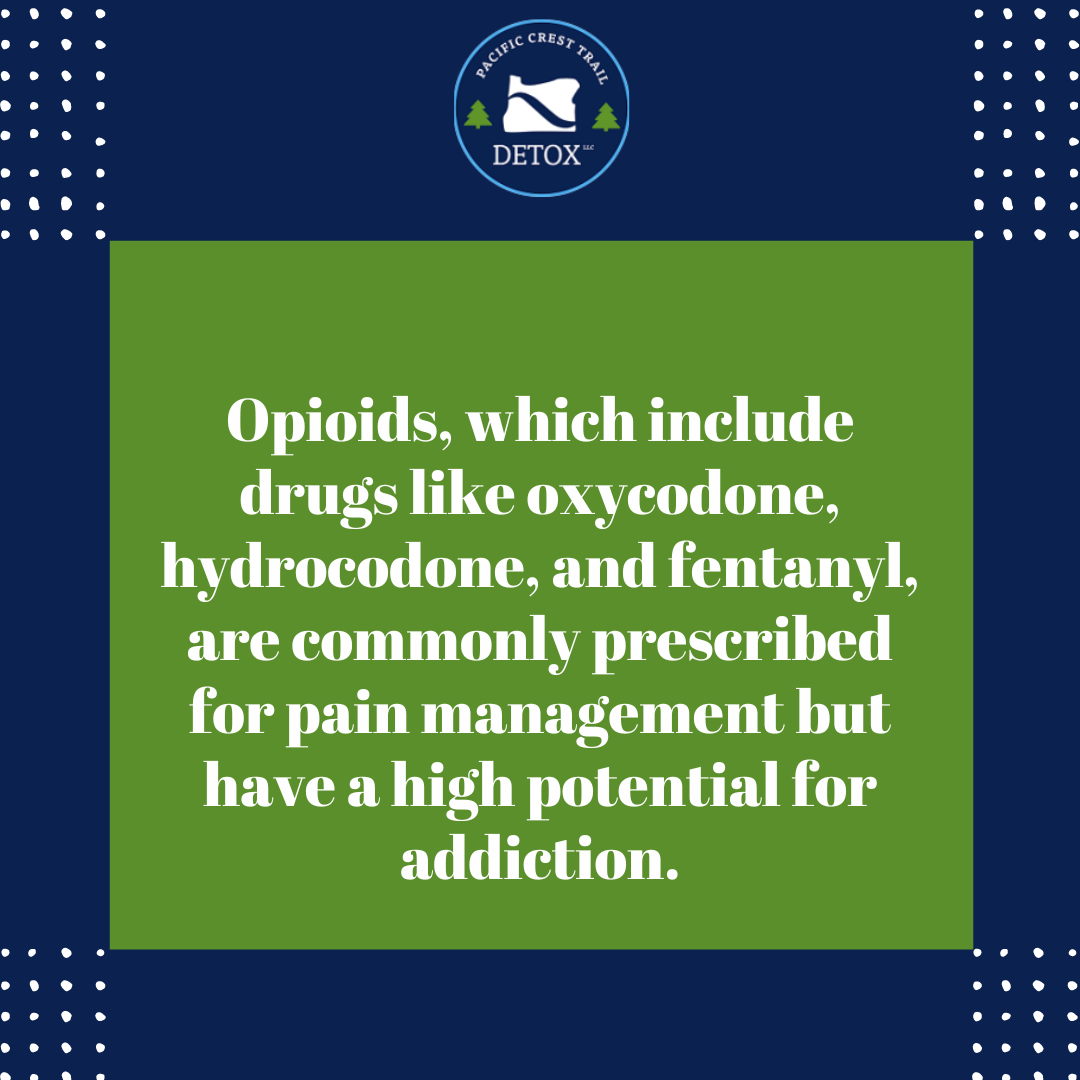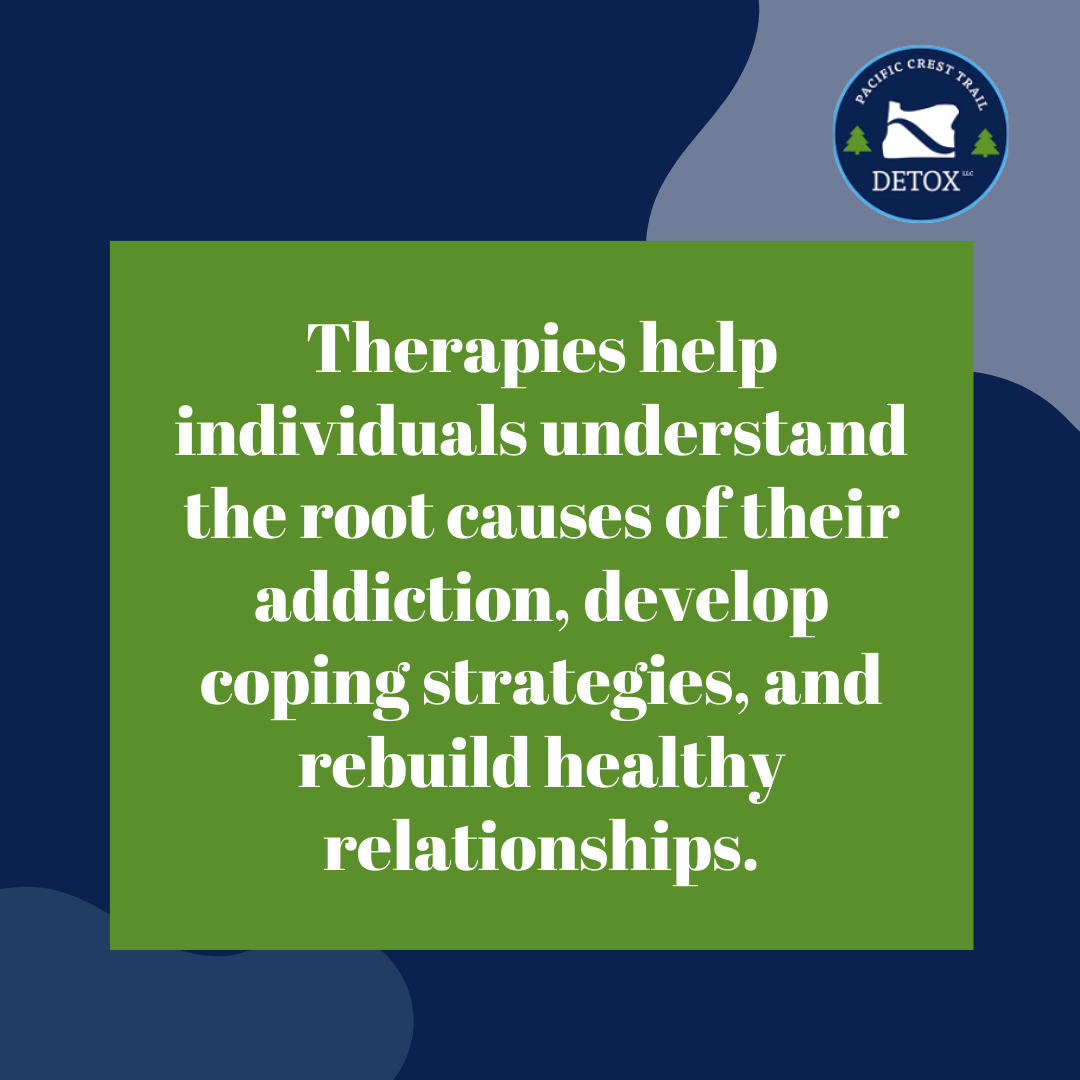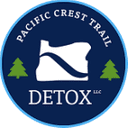Have you ever wondered how a medication meant to ease pain can unintentionally lead to a struggle with addiction? Painkiller addiction, a growing concern in our society, is an issue that quietly creeps into lives. This type of addiction, particularly involving opioids and prescription drugs, has seen a worrying increase in prevalence, impacting individuals and families alike.
Understanding how dependency on pain relievers develops and its far-reaching effects is the first step towards addressing this complex issue. Let's explore this further and discuss why addiction treatment, especially in regions like Oregon, is crucial in turning the tide against this silent epidemic.
 Source: Pacific Crest Trail Detox
Source: Pacific Crest Trail Detox
The Rise of Painkiller Addiction
Painkiller addiction, specifically involving opioids, is a significant and growing public health issue. Recent data from the Centers for Disease Control and Prevention (CDC) indicates a sharp increase in the misuse of prescription opioids, affecting a large number of Americans each year. This trend highlights a serious concern in healthcare and addiction treatment.
Opioids, which include drugs like oxycodone, hydrocodone, and fentanyl, are commonly prescribed for pain management but have a high potential for addiction. Even when used according to prescription guidelines, these medications can lead to dependency. The prevalence of opioid addiction underscores the need for careful prescription practices and effective treatment strategies.
How Does Painkiller Dependency Develop?
Painkiller dependency is a complex process influenced by both physiological and psychological factors. Physiologically, when painkillers are used, they bind to specific receptors in the brain, reducing the perception of pain and often inducing feelings of pleasure or euphoria. Over time, the brain adapts to these drugs, leading to tolerance – where higher doses are needed to achieve the same effect – and physical dependence.
Psychologically, the relief from pain that opioids can provide may lead individuals to continue using these medications beyond their medical need. This behavior can develop into a psychological reliance on the drug to cope with not just physical pain, but emotional distress as well.
Contributing factors to this dependency include chronic pain management, where patients are prescribed opioids for extended periods, and certain prescription practices that may not adequately consider the addiction potential of these drugs. The development of dependency is often a gradual process, making it challenging to identify and intervene early.
Additionally, the dangers of self-medication with painkillers cannot be overstated. Individuals who self-medicate risk increasing their tolerance, becoming dependent, and even overdosing, particularly with potent opioids. Self-medication also masks underlying health issues, potentially leading to delayed diagnosis and treatment, harmful drug interactions, and side effects.
 Source:
Pexels.com
Source:
Pexels.com
The Impact of Painkiller Addiction
Painkiller addiction can have profound effects on physical health. Understanding these consequences is vital for both individuals and healthcare providers to take proactive steps in treatment and recovery.
- Tolerance and Dependence: Prolonged use of painkillers often leads to tolerance, requiring higher doses to achieve the same pain-relieving effect, and physical dependence, where the body experiences withdrawal symptoms without the drug.
- Organ Damage: Chronic use can harm vital organs. For instance, opioid painkillers can depress respiratory function, potentially leading to hypoxia, a condition where the brain does not get enough oxygen, resulting in various neurological and cognitive impairments.
- Gastrointestinal Issues: Painkillers, especially opioids, are known to cause gastrointestinal problems like constipation, nausea, and in severe cases, bowel obstruction.
- Overdose Risk: One of the most immediate and severe risks of opioid addiction is the possibility of overdose, which can be fatal. Symptoms include severe respiratory depression, unconsciousness, and, in severe cases, death.
- Mental Health Issues: Chronic painkiller use can exacerbate or trigger mental health conditions such as depression or anxiety.
- Increased Sensitivity to Pain: Ironically, prolonged opioid use can lead to hyperalgesia, an increased sensitivity to pain, making pain management even more challenging.
The Signs of Painkiller Addiction
Addiction can manifest in various ways, and being aware of these signs can help in identifying individuals who might be struggling. Here are some key indicators to be mindful of:
- Withdrawal Symptoms: Experiencing physical or psychological symptoms like nausea, sweating, agitation, or anxiety when not taking the drug.
- Preoccupation with Obtaining Medication: Spending a significant amount of time thinking about the drug, obtaining it, and using it.
- Continued Use Despite Negative Consequences: Using painkillers even when it leads to personal, professional, or health problems.
- Neglecting Responsibilities: Failing to meet work, school, or family responsibilities due to drug use.
- Changes in Social Behaviors: Withdrawing from social activities, friends, or family members and potentially associating with new groups centered around drug use.
- Risky Use: Using painkillers in dangerous situations, such as while driving.
- Mood Swings: Experiencing significant changes in mood, which may include irritability, depression, or anxiety, associated with drug use or withdrawal.
Treatment Options for Painkiller Addiction
Opioids are one of the most abused drugs in the United States. This, along with other types of drug addiction requires a comprehensive and personalized approach. Various treatment options are available, each addressing different aspects of addiction and recovery.
 Source: Pacific Crest Trail Detox
Source: Pacific Crest Trail Detox
Detoxification
The first step in treating opioid addiction often involves detoxification, a medically supervised process to safely remove the drug from the body. This process helps manage withdrawal symptoms and prepares the individual for further treatment.
Medication-Assisted Treatment (MAT)
MAT combines medications with counseling and behavioral therapies. Medications like buprenorphine, methadone, and naltrexone are used to reduce cravings and withdrawal symptoms, making it easier to engage in therapy and recovery activities.
Therapy
Various forms of therapy, including cognitive-behavioral therapy (CBT), group therapy, and family counseling, play a crucial role in addressing the psychological aspects of addiction. These therapies help individuals understand the root causes of their addiction, develop coping strategies, and rebuild healthy relationships.
Holistic Approaches
Holistic treatments, such as mindfulness, meditation, yoga, and acupuncture, can complement traditional treatment methods. These approaches focus on overall well-being, helping individuals find balance and reduce stress, which is vital for long-term recovery.
 Source:
Pexels.com
Source:
Pexels.com
Finding the Best Addiction Treatment in Oregon
As we reflect on the issue of painkiller addiction, it becomes evident that proactive and informed action is essential. Through this blog, we have highlighted key aspects of addiction development, its impacts, and the diverse treatment options available, emphasizing the necessity of personalized care.
At Pacific Crest Trail Detox, we understand the complexities of addiction and are dedicated to providing compassionate, effective treatment tailored to individual needs. If you or a loved one is facing the challenge of painkiller dependency, take the first step towards a healthier future. Contact us today, and let us guide you on the path to recovery.
